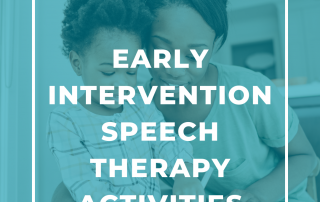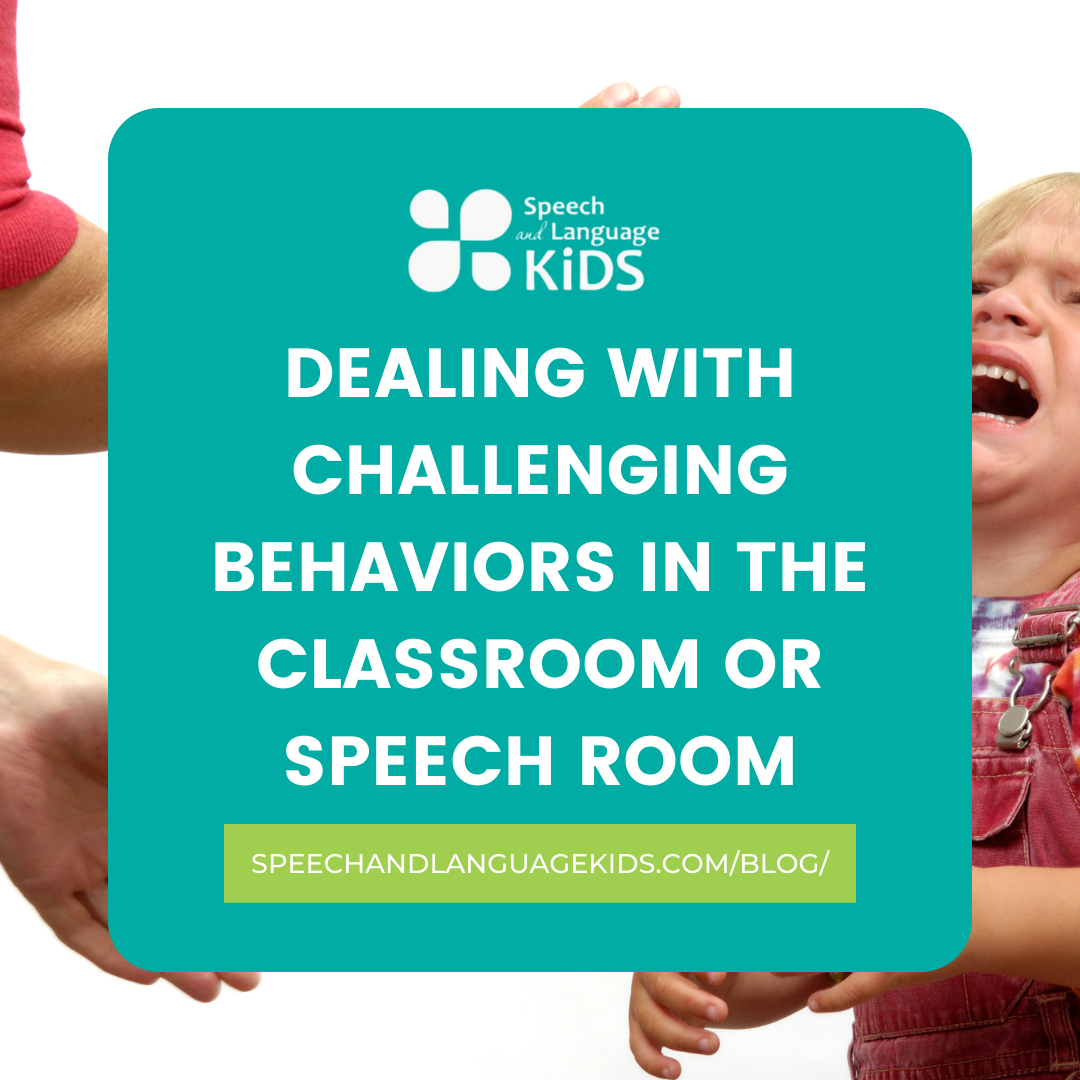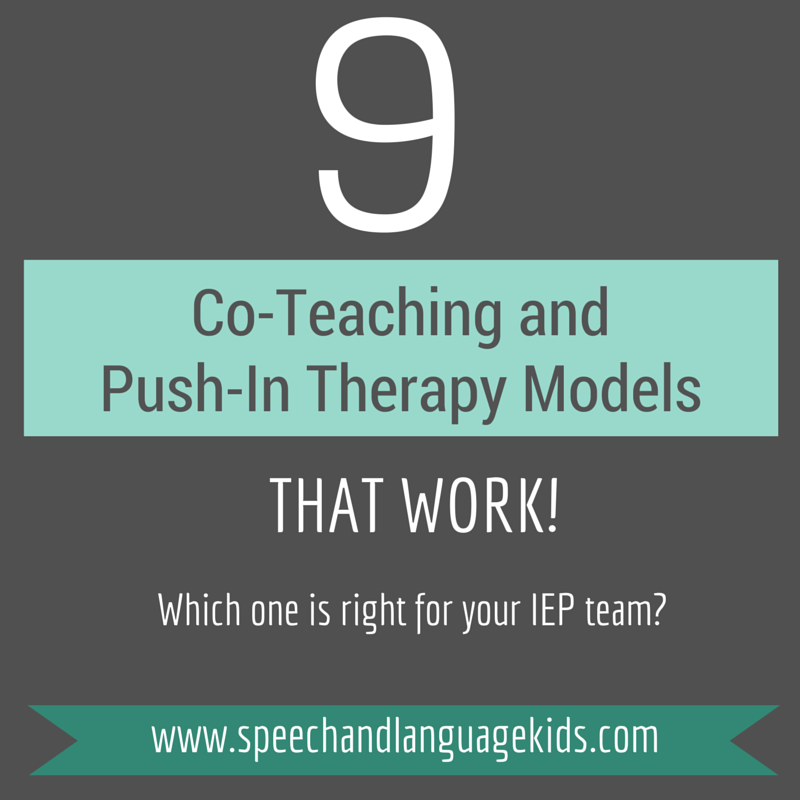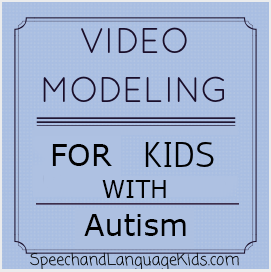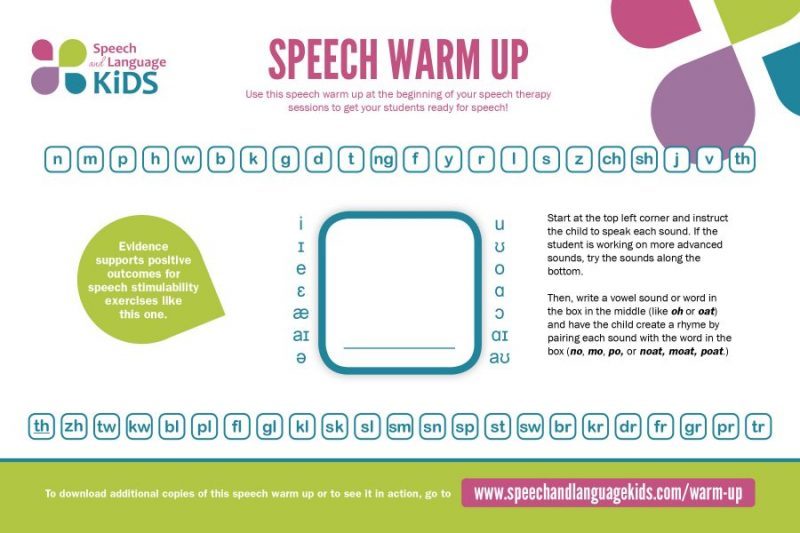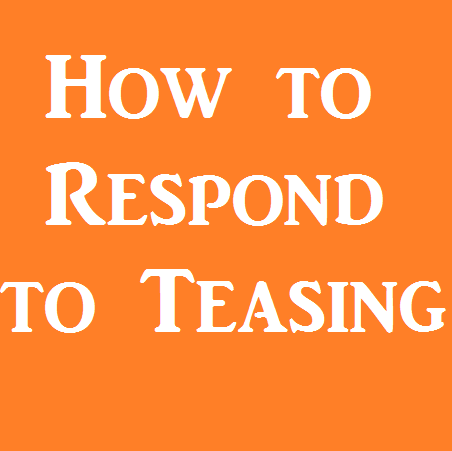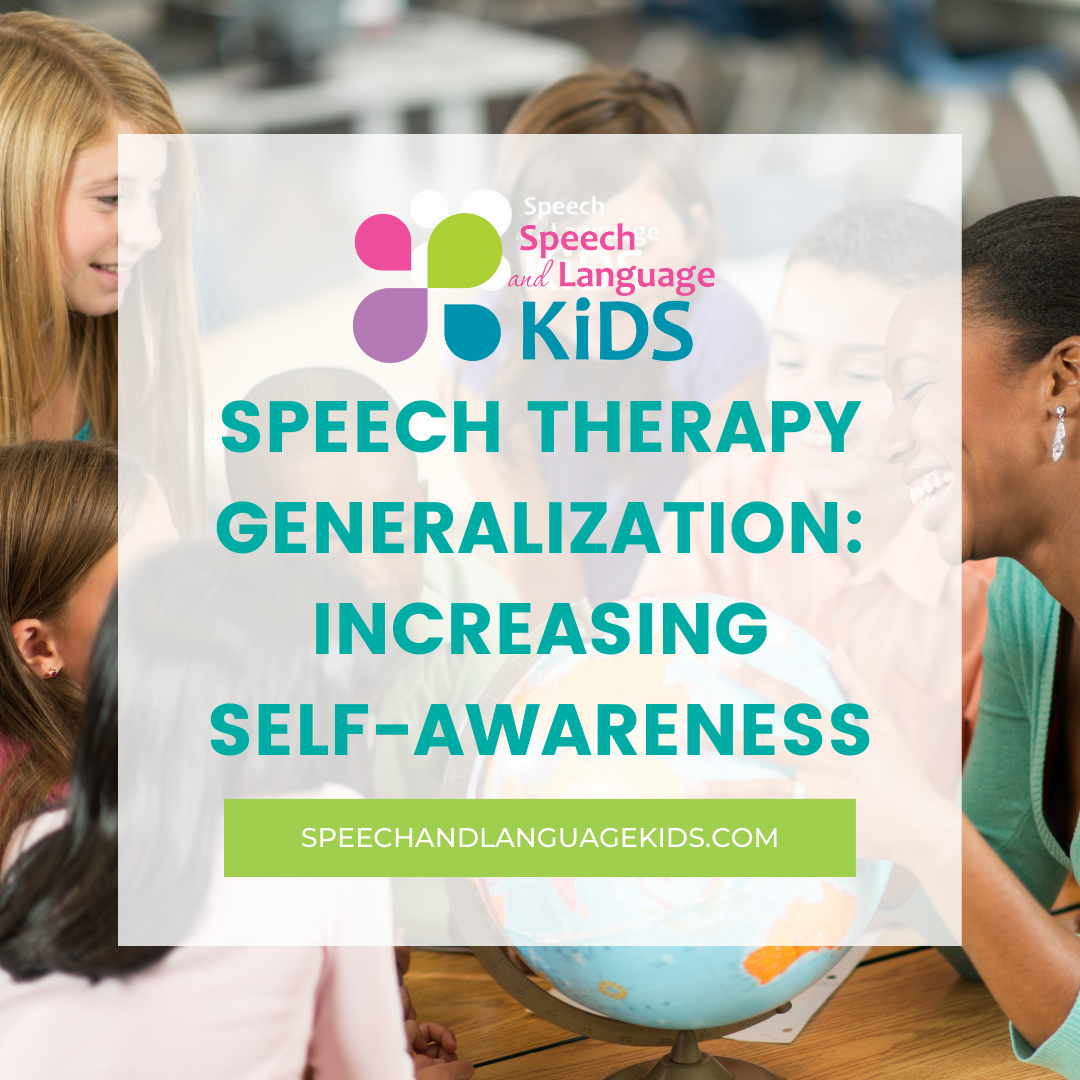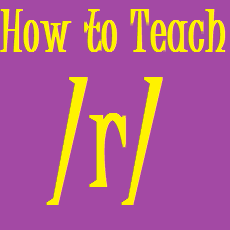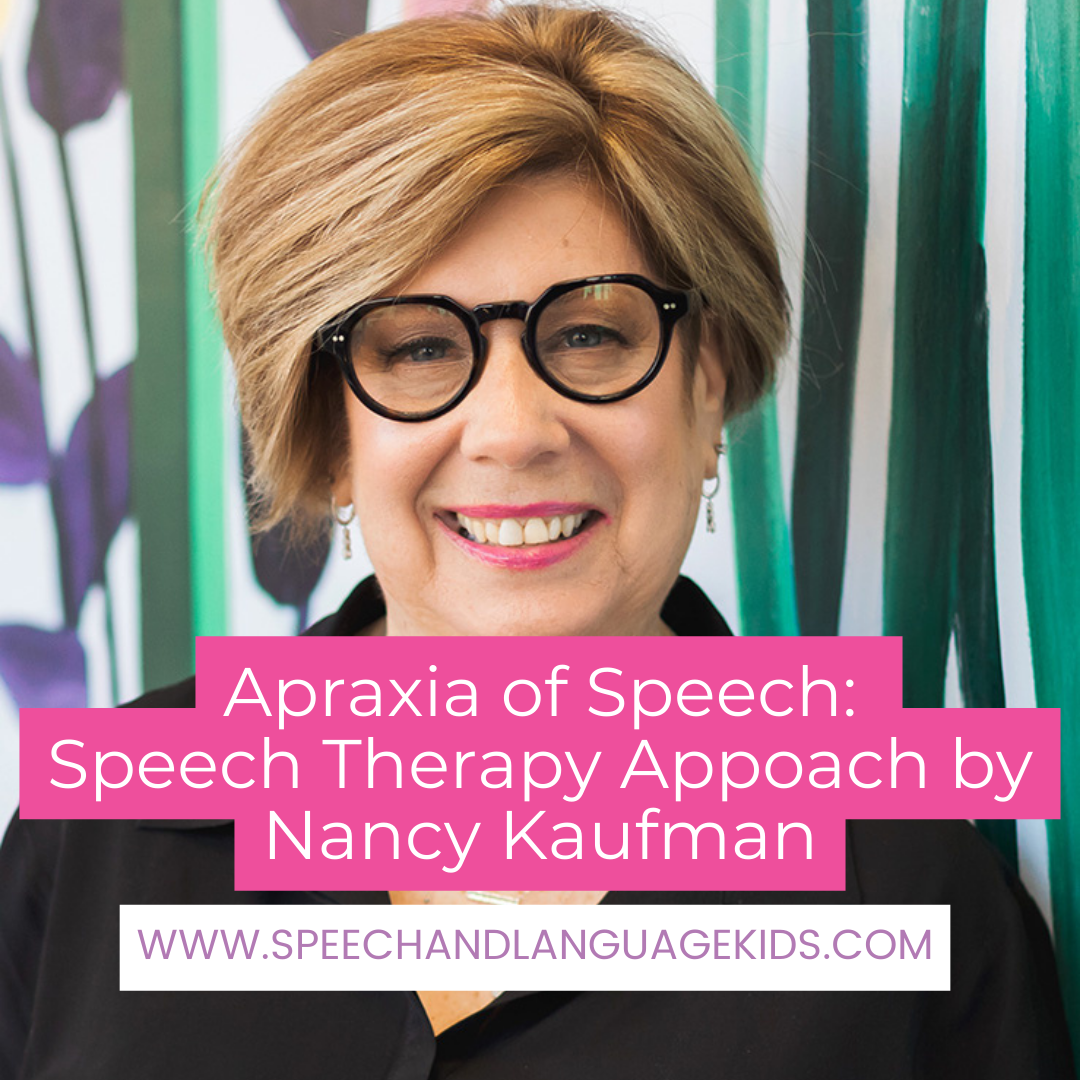Topic:
Resource Type:
Results:
Early Intervention Speech Therapy Activities
Early Intervention Speech Therapy Activities Early intervention is what we call therapy services delivered from birth-5 years of age. These are the years before kids enter Kindergarten and the public schools. These years are critical for communication development so if a child has communication difficulties, it is crucial
How to Deal with Challenging Behaviors in the Classroom and Speech Therapy Room
Today we are joined by Karli Koning from http://www.behaviorpc.com/ to talk about challenging behavior problems in children. Karli explains how to figure out the function of a child’s behavior and use that information to help correct it.Listen to the interview here or keep scrolling to view the notes:
Making Inferences For Speech Therapy
How to Help Children Learn to Make Inferences An inference is when you use clues present (in text or in real life) along with your background knowledge to make a guess about something that's not explicitly known. For example, if you see an "out of order" sign, you
9 Co-Teaching and Push-In Therapy Models that Work
Are you struggling to know the best way to do push-in therapy or co-teach? I've put together the top 9 models for co-teaching and push-in therapy for speech therapists and other professionals. Watch the video for explanations and click the button below to download the handout with all 9
Using Video Modeling For Kids With Autism
What is Video Modeling? Video modeling is a fun instructional technique where the child watches a video of himself or herself doing a desired behavior or skill. For example, let’s say Johnny always throws a fit on the way from the bus to his classroom at the beginning of
Tips for Productive Group Speech Therapy Sessions
Having trouble making your group therapy session run smoothly? Check out this video with four different approaches to group therapy plus tips for managing student behavior, collecting data, and starting your sessions off smoothly. To Download the Slides from this Video for Free, Click the Button
Speech Therapy Warm-Up
Still doing Non-Speech Oral Motor Exercises for Warm-Ups? Try this instead!! Click Here to Download a PDF of the Warm-Up Need some sources for this info? Dr. Loff shared these with me: http://lshss.pubs.asha.org/article.aspx?articleid=1778841 http://www.researchgate.net/publication/248844490_Oral_Motor_Exercises_and_Treatment_Outcomes http://europepmc.org/abstract/med/19058121 http://www.citeulike.org/group/18272/article/12798999 http://sig16perspectives.pubs.asha.org/article.aspx?articleid=1761803 http://lshss.pubs.asha.org/article.aspx?articleid=1779061 Speech sounds that are stimulable are more likely to improve without
Productivity Hacks for Speech Therapists
Making Your Job a Little Easier Are you drowning in paperwork? Do you have too many kids on your caseload? Do you feel like you spend more time on paperwork and meetings than you do with your students/clients? Would you like to feel like a more effective speech therapist? If
Idiom, Figurative Language Speech Therapy Activities
How to Teach Idioms and Figurative Language to Kids and Teens Have you been bending over backwards trying to teach your students idioms? Are they left high and dry when idioms are used in their classrooms? Well I’m going to take the bull by the horns and knock your
How to Help your Child with Teasing
“You’re kid sounds funny” “He’s so weird” “What’s wrong with that kid?” “Why is he doing that?” “Is she dumb or something?” Sticks and stones may break bones but words can be just as painful if you are the parent of a child with special needs. Those insults may
Frontal Lisp/Interdental Lisp | Speech Therapy Ideas & Word Lists
What Is a Frontal Lisp? Let’s start at the beginning. A frontal lisp, also known as an interdental lisp, occurs when a child says the /s/ and /z/ sounds with the tongue pushed too far forward. This causes /s/ and /z/ to sound more like “th”. Frontal
Final Consonant Deletion | Activities, Words, and Goals
What is Final Consonant Deletion? Final consonant deletion is a phonological process (pattern of speech errors) where a child drops off the ending consonants of all words. Final Consonant Deletion Examples: “dog” becomes “dah” “cat” becomes “ca” And “Please Mom, can I eat some eggs and toast?”
How to Teach a Child to Form Narratives
Summary: Explicitly teach narrative structure to children: Introduction: settings and characters Details/Body: Use first, next, then, and last to describe the details in order. Make sure the problem is presented in this section. The solution can go in here as well or in the next section. Conclusion: The
The Magic Formula to Teach a Child Any New Skill (By Fading Supports)
The inspiration for this post came to me while I was laying in my 10-month-old’s crib with him. Yeah, I’m that mom. But let me explain! My sweet baby boy was an excellent sleeper until he hit the 6-month mark. Then, suddenly we went from one night waking to
Phonological Awareness Hierarchy, Skills, and Goals
What is Phonological Awareness? Phonological awareness refers to a set of skills that children typically develop in the preschool years as pre-reading skills. These include skills where the child begins to understand how words are made up of individual sounds and those sounds can be
Speech Therapy Generalization: Boosting Self-Awareness to Increase Carry-Over
Speech Therapy Generalization: Boosting Self-Awareness to Increase Carry-Over In episode 25 of the Speech and Language Kids Podcast, speech-language pathologist Carrie Clark discusses how to increase self-awareness and carry-over skills for children who do not pay attention to if they are saying things correctly or not.
Teaching Present Progressive “-ing” Words for Kids
How to Teach Present Progress "-ing" Words to Children: The present progressive “-ing” grammatical marker is the one we tack on the end of a verb to say that the action is currently happening. For example, we might say “he is running” or “she is flying”. When a
How to Teach the /r/ Sound with Christine Ristuccia
In episode 24 of the Speech and Language Kids Podcast, Carrie Clark interviews speech-language pathologist Christine Ristuccia, founder of "Say it Right" about how to teach that tricky /r/ sound. This is great information for parents or SLPs! Who Is Christine Ristuccia? Christine Ristuccia, M.S., C.C.C.-S.L.P. is an
Phonological Processes: Definition, Examples, and Therapy
What Are Phonological Processes? Phonological processes are patterns of sound replacements that children use to simplify their speech. When a child is young, he hears the speech sounds of the language used around him, but he can't yet produce all of them. Children don't sound like adults when they
Apraxia of Speech: Speech Therapy Approach by Nancy Kaufman
Teaching Adjectives to Children: Activities and Worksheets for Helping Kids Learn Adjectives Childhood Apraxia of Speech (CAS) is a rare, neurologically-based speech disorder where the child knows what he wants to say but the message gets mixed up in the motor-planning and execution phase so the sounds come
Podcast: Play in new window | Download | Embed

